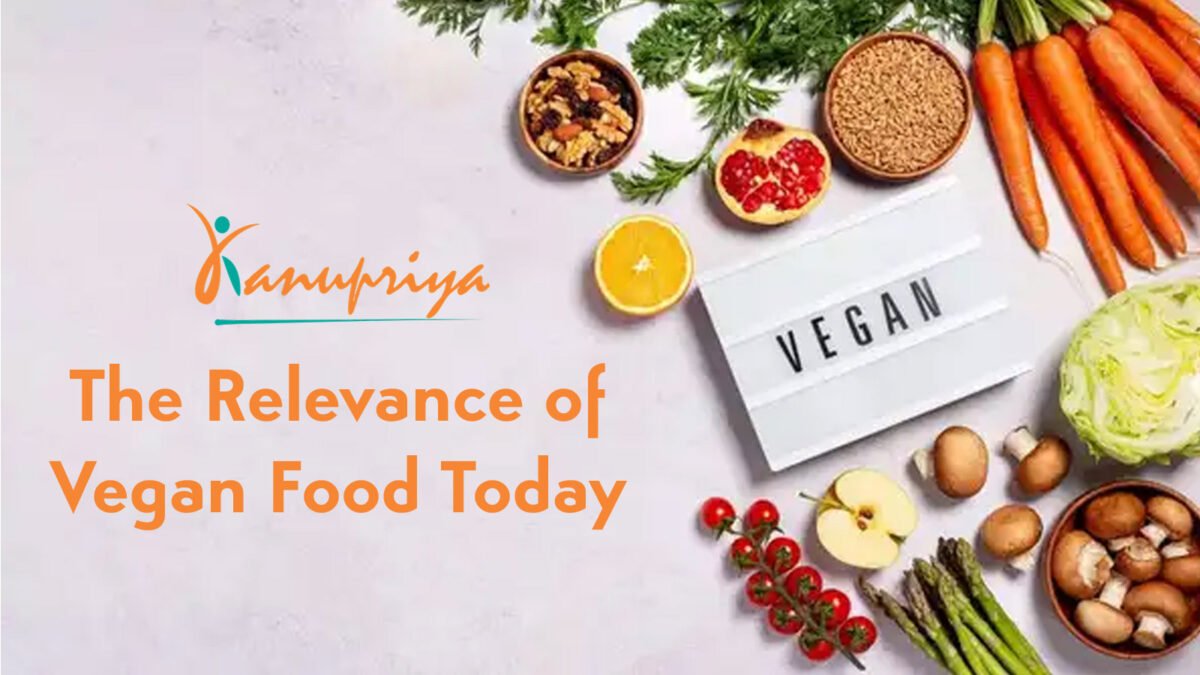By Kanupriya Khanna, Consultant Nutritionist & Dietitian
In today’s fast-paced world, conversations around health and wellness are evolving rapidly. Among the many dietary approaches gaining prominence, veganism has emerged not just as a trend but as a conscious lifestyle choice with far-reaching benefits. Rooted in the principle of eliminating animal derived foods, a vegan diet emphasizes fruits, vegetables, whole grains, legumes, nuts, and seeds.
Beyond being a food preference, veganism aligns beautifully with both modern health goals and ancient Ayurvedic wisdom, making it highly relevant in today’s world.
A Rising Consciousness
People around the world are becoming increasingly aware of the impact of food on not only personal health but also the well-being of the planet. Vegan food addresses both. Ayurveda has long taught us that food is medicine and should be chosen with mindfulness. Similarly, veganism reflects compassion, sustainability, and balance — qualities that are much needed in this age of environmental
stress and lifestyle diseases.
Health Benefits of a Vegan Diet
The health advantages of vegan food are well established. A thoughtfully planned vegan diet is rich in fibre, antioxidants, vitamins, and phytochemicals, while being low in saturated fat.
This offers multiple benefits:
• Supports Heart Health: Plant-based diets lower cholesterol and blood pressure, reducing cardiovascular risk.
• Weight Management: Nutrient-dense yet lower in calories, vegan foods help maintain a healthy body weight.
• Blood Sugar Regulation: Fibre and complex carbohydrates from whole plants improve insulin sensitivity, aiding diabetes management.
• Cancer Protection: Antioxidant-rich fruits and vegetables protect cells from damage.
From an Ayurvedic perspective, vegan foods are largely sattvic in nature; calming, energising, and balancing to body and mind. They support ojas (vital energy), build immunity, and enhance mental
clarity.
Veganism & Sustainability
Another reason vegan food is so relevant today is its environmental impact. Animal agriculture needs extensive resources, contributing to deforestation, greenhouse gas emissions, and water scarcity.
Choosing vegan helps reduce this strain. Ayurveda has always emphasised harmony with nature and mindful use of resources. Veganism is a contemporary reflection of these timeless values.
Bridging Veganism & Ayurveda
At first glance, Ayurveda and veganism may seem different, since Ayurveda traditionally incorporates ghee, milk, and honey. Yet both share deep respect for nature and health. With a rise in lifestyle diseases, pollution, and ethical concerns around mass-scale dairy and meat production, many are exploring plant-based alternatives. Aligning vegan diets with Ayurvedic principles is simple: focus on
fresh, seasonal, local, and minimally processed foods. Replacing dairy with almond or oat milk, or using cold-pressed oils in place of ghee, can preserve dosha-balancing effects while honouring ethical
choices.
The Tourism Connection
As Ayurveda and health tourism gain popularity in India, vegan food is becoming an integral part of the experience. Global travellers seek wellness retreats that provide not just therapies, but holistic lifestyles reflecting their values. Vegan Ayurvedic menus — featuring millet porridges, vegetable stews, lentil soups, and herbal teas — offer nourishment that heals body and spirit. Such offerings strengthen India’s reputation as a global wellness destination, rooted in tradition yet responsive to modern needs.
Conclusion
The relevance of vegan food today extends far beyond diet — it is about aligning personal health, planetary sustainability, and ethical values. It resonates with Ayurvedic wisdom of balance, compassion, and respect for nature. For individuals, it offers healing from within. For the planet, it promises sustainability. And for Ayurveda & Health Tourism, it provides a bridge between ancient
traditions and global wellness aspirations.
By embracing veganism, we are not choosing just a way of eating, but joining a movement that honours life in all its forms — human, animal, and ecological.
About the Author
Kanupriya Khanna is a practising Consultant Nutritionist & Dietitian with over two decades of experience in fertility nutrition, autoimmune disorders, and food allergies & intolerances.
She is also the founder of Karamele, a clean-label bakery specialising in gluten-free, vegan, and refined sugar free products. Through her work and Karamele, she promotes mindful eating that is both sustainable and enjoyable.

